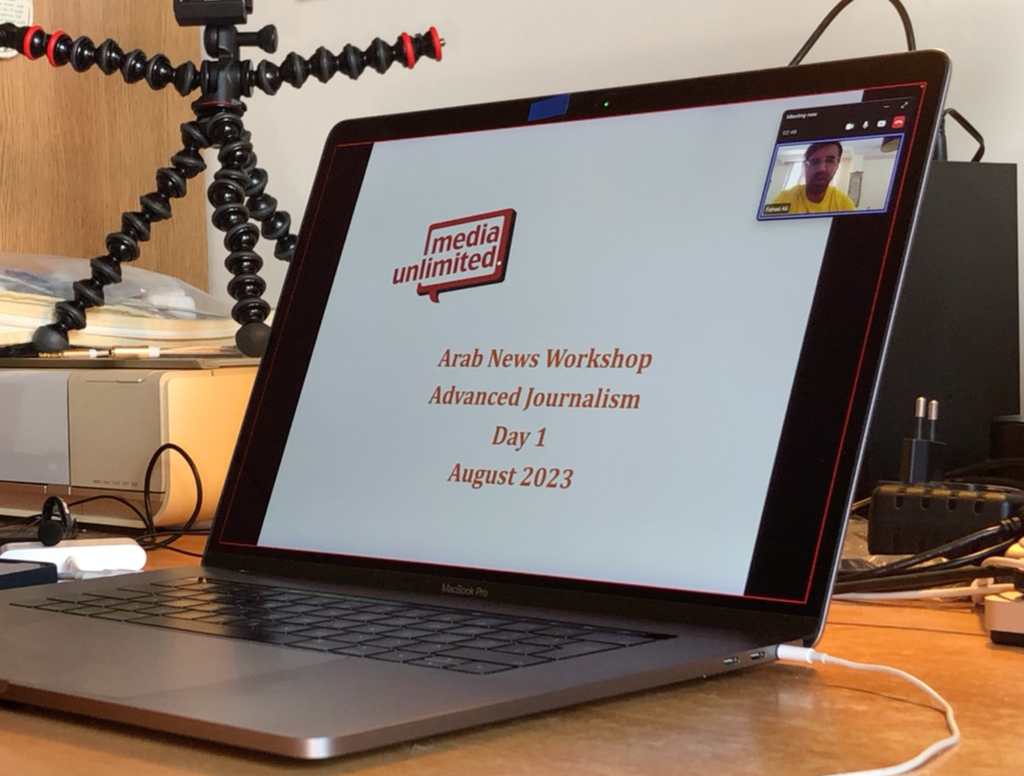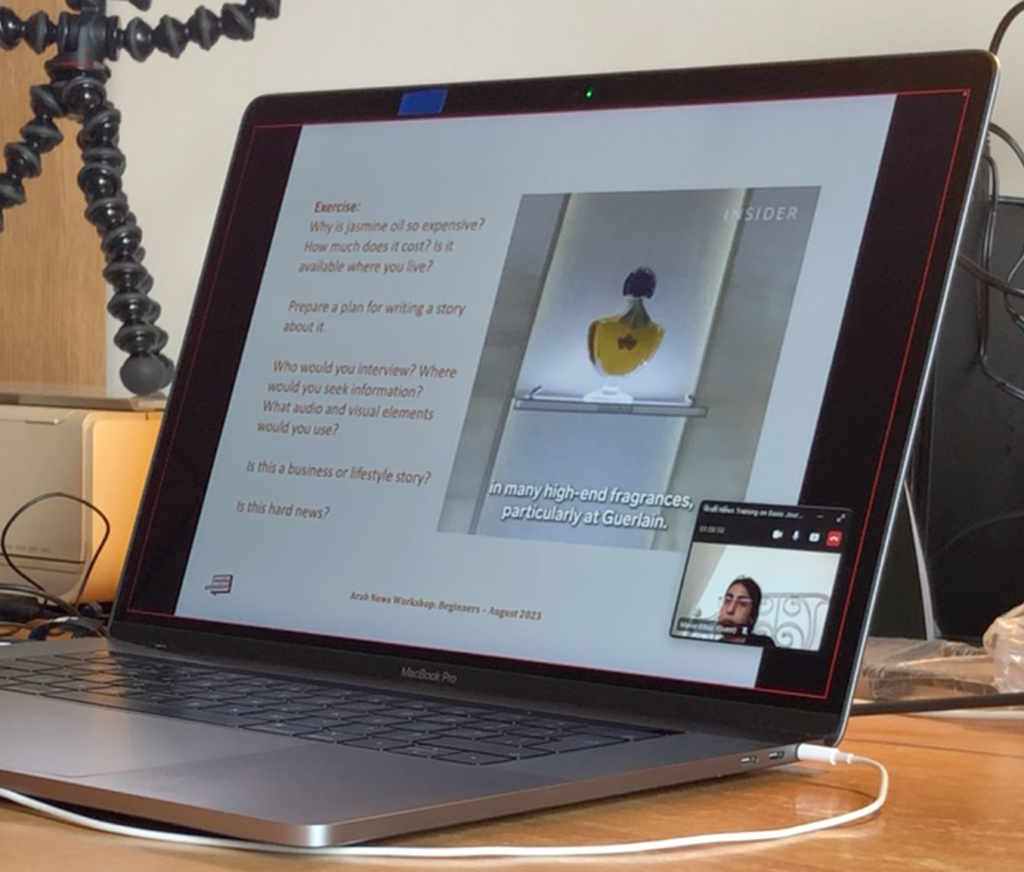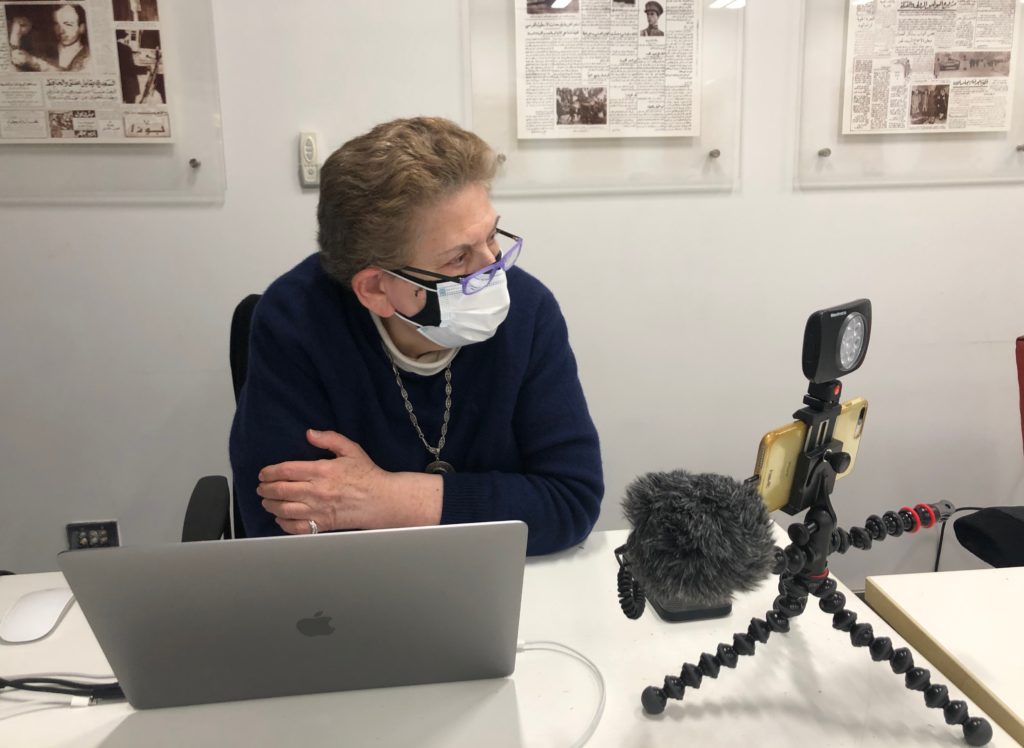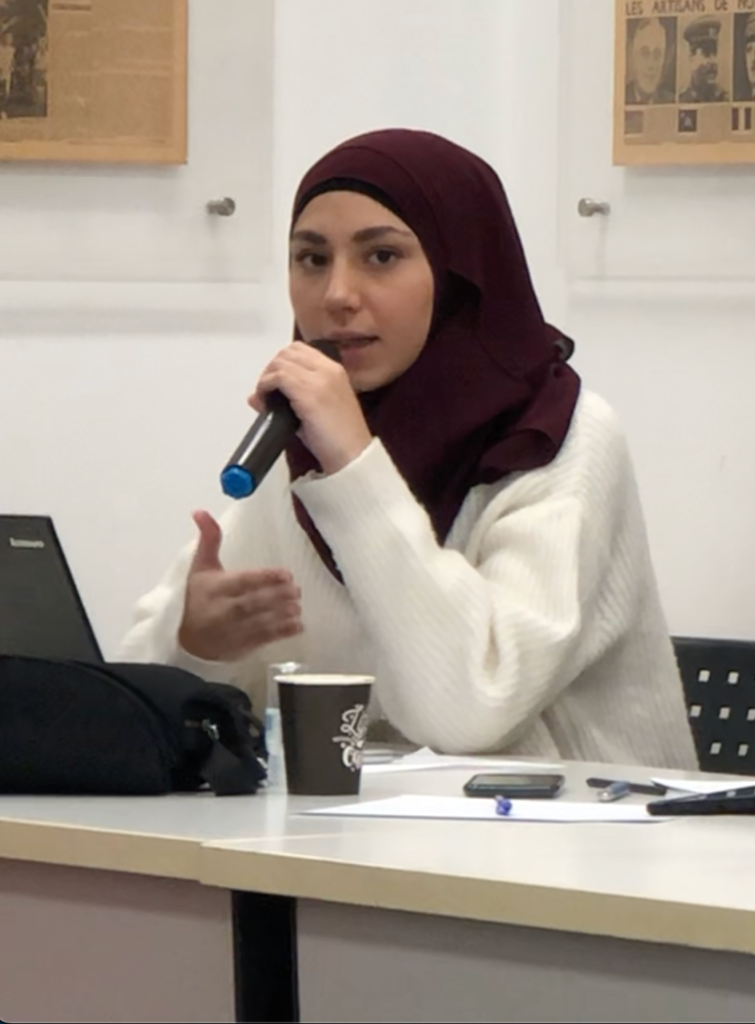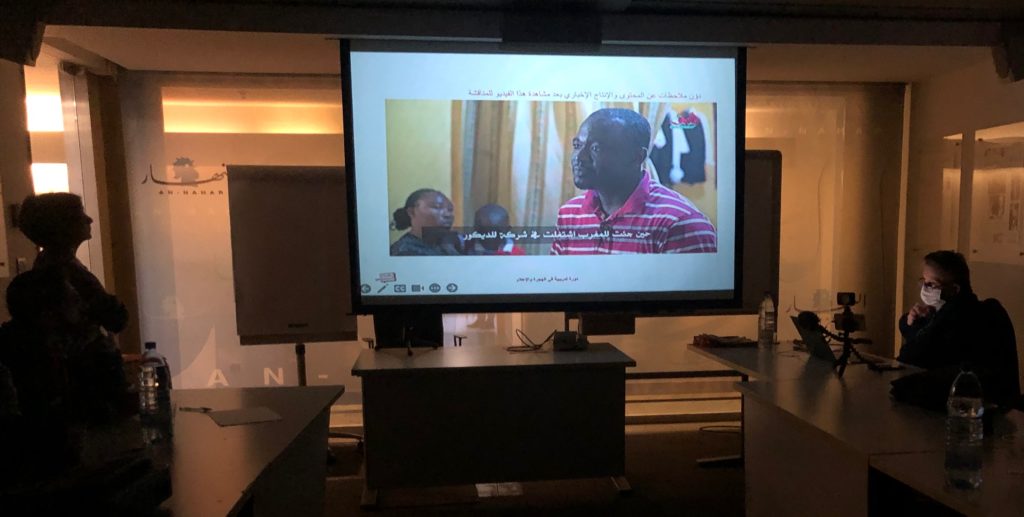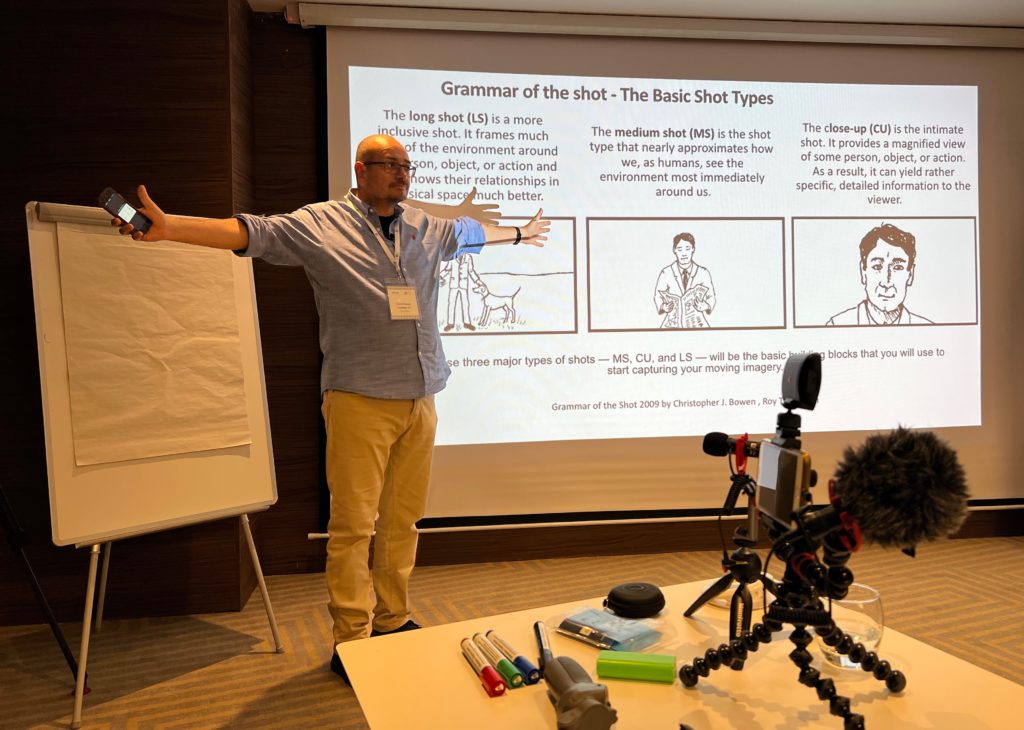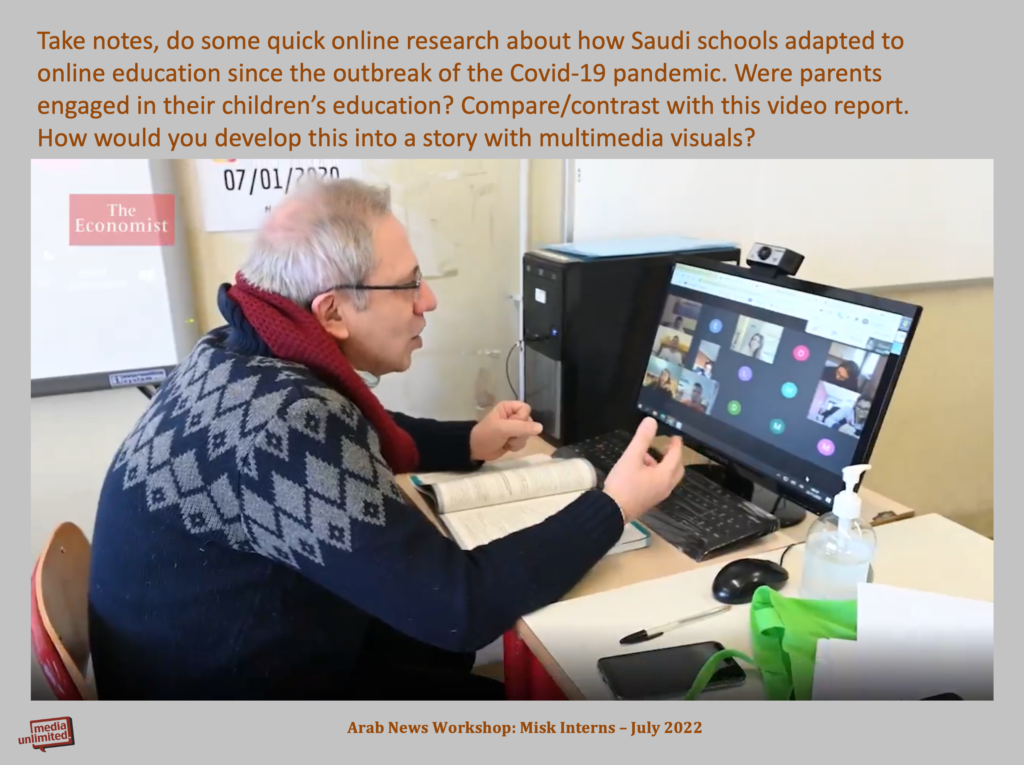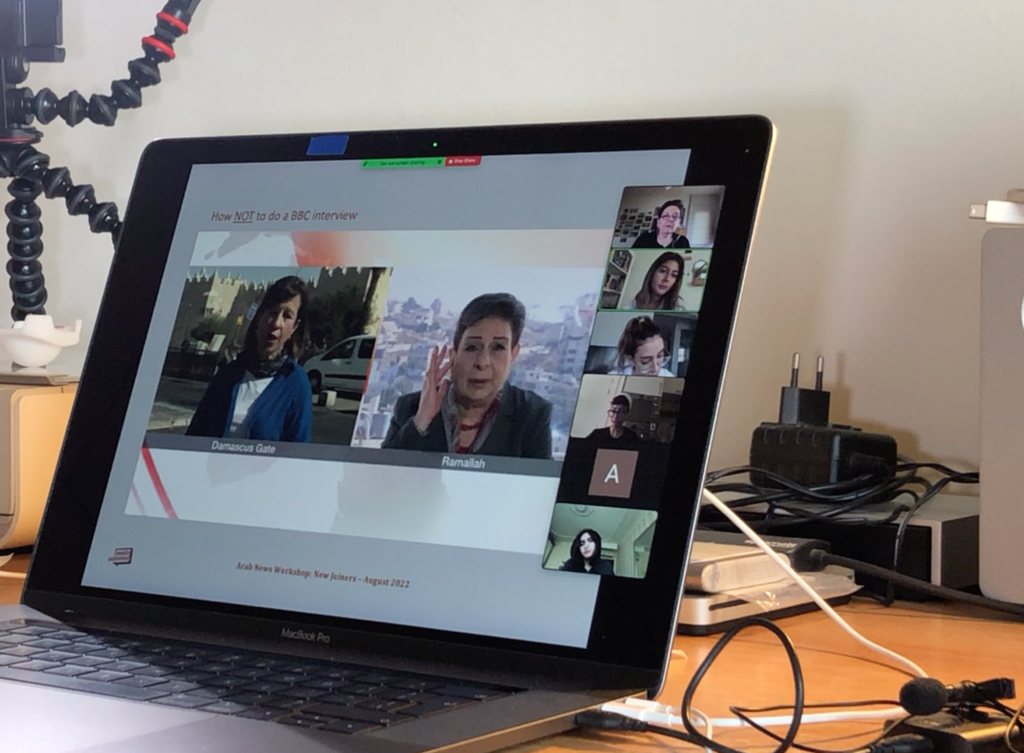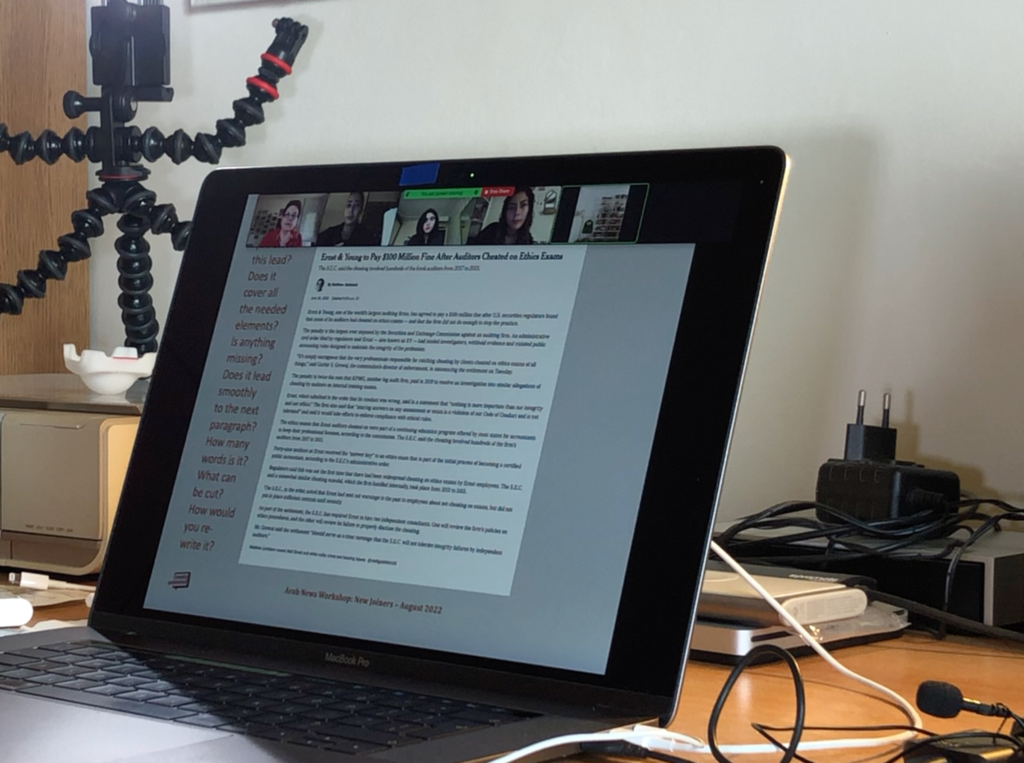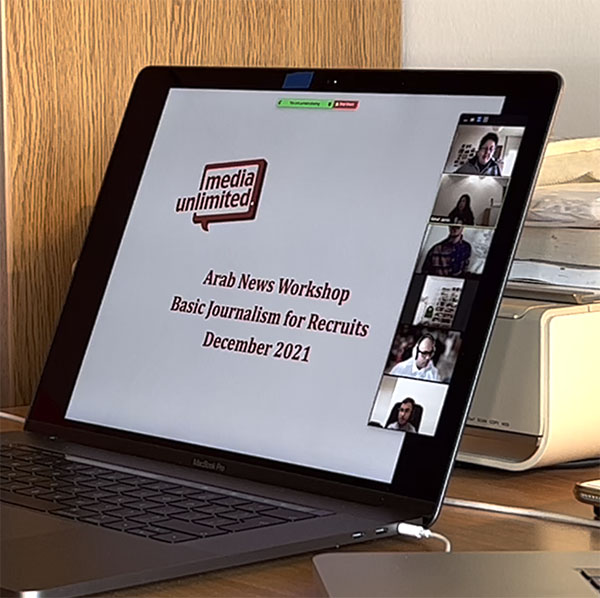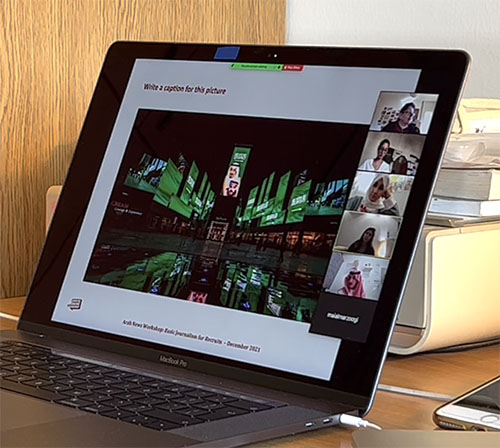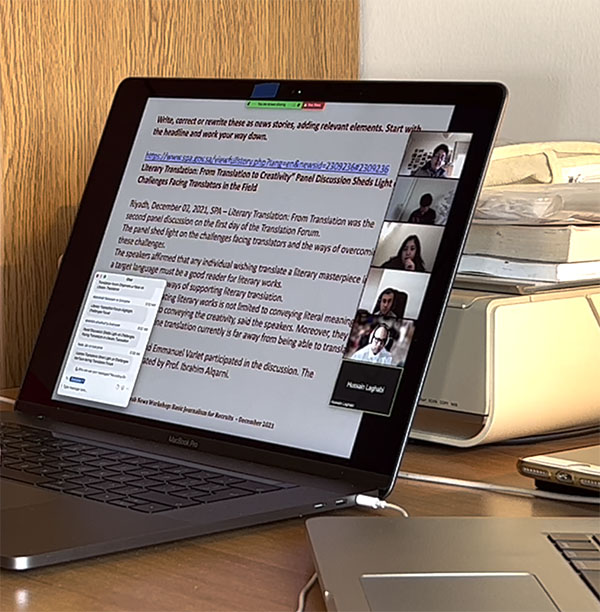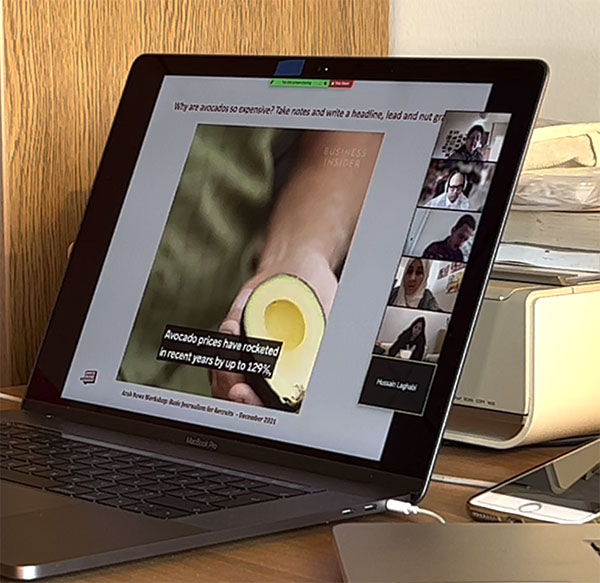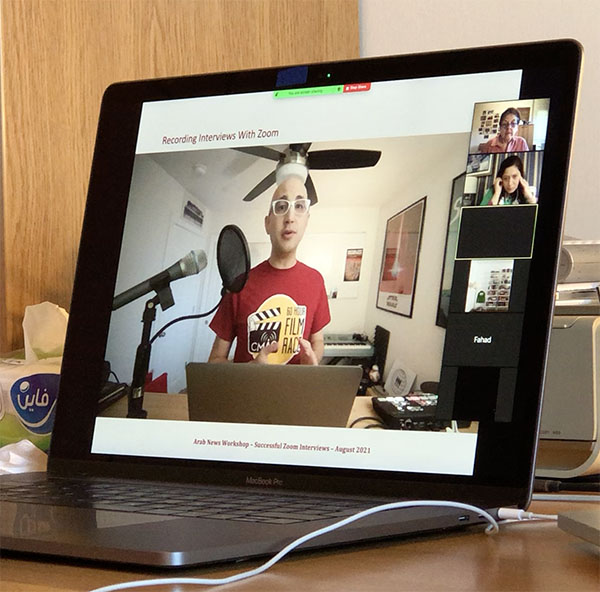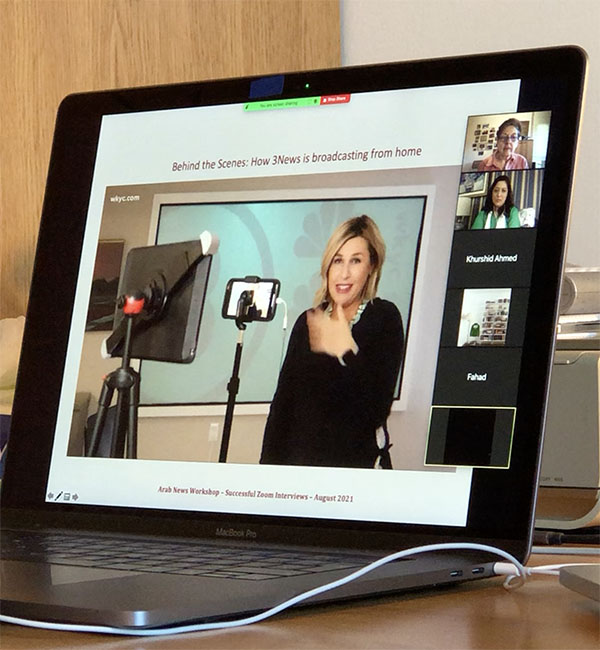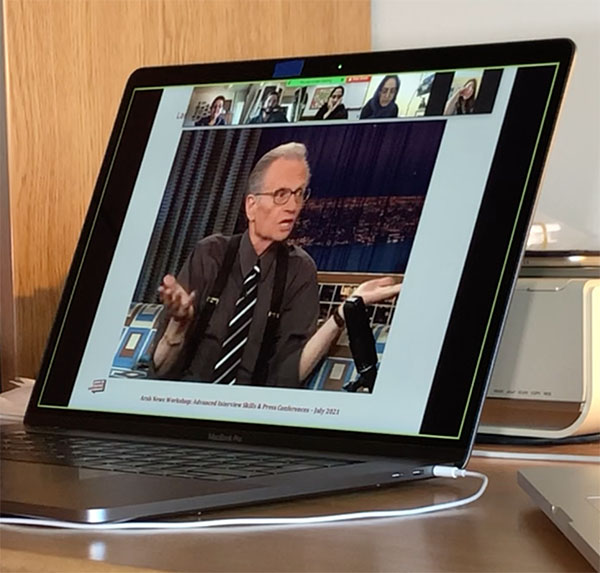Media Unlimited director Magda Abu-Fadil led a three-day workshop for Arab broadcasters on best practices in covering migration, refugees and human trafficking in Tunis in a bid to raise standards and help the trainees sharpen their mobile journalism (MoJo) skills.

She joined forces with audiovisual multimedia expert David Hands to train participants from the southern Mediterranean region in November 2023 as part of the EUROMED Migration V initiative in cooperation with the International Centre for Migration Policy Development (ICMPD).
The training relied on an interactive, mentoring and engaging approach using presentations based primarily on the migration and media guide authored by Abu-Fadil, but also on references, articles, reports, case studies, videos and relevant materials culled from media, academia, international organizations and other sources.

Abu-Fadil and Hands provided exercises to test participants’ comprehension of the topics’ complexity, including a grasp of terminology used to characterize (or mis-characterize) migration, refugees and human trafficking; how they had covered these subjects (or planned to cover them) by using certain tools and skills; understanding what international and local organizations and NGOs actually do in their respective countries and abroad; the laws and conventions on the matter; and, what level of importance they placed such coverage as opposed to other news.
The trainers focused on the craft of combining solid research, writing and editing with impactful, visual and sharable storytelling for informed audiences through digital multimedia as well as amplifying the work of journalists across social media.
The trainees learned about the quality of images and sound, how audiovisual elements are related and how best to edit them using different apps for Android and IOS devices. They produced content the trainers evaluated with feedback from colleagues in the workshop.

Trainees were also coached in the principles of media ethics, physical and mental health as well as security matters. The trainers immersed the journalists in the art of interviewing and information verification.
Abu-Fadil and Hands drew on their years of journalistic experience and of teaching and training in various countries, notably in news gathering, writing, editing, digital multimedia, traditional photography, videography, radio broadcasting, social media, audience engagement, media analytics and blogging.
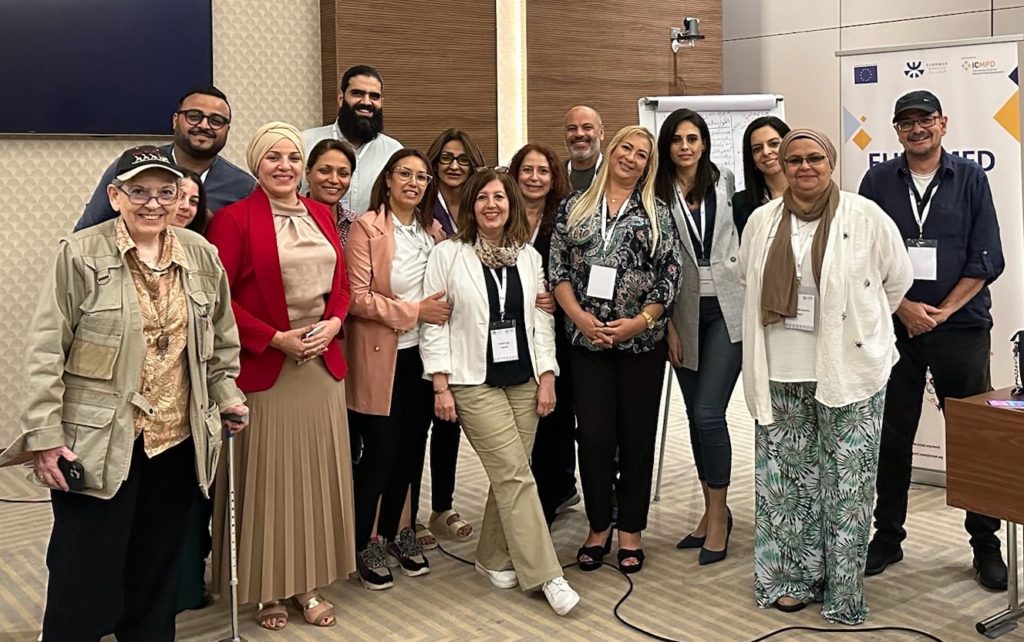
They previously trained journalists in Tunis as part of the Migration Media Award under the auspices of the ICMPD-Thomson Foundation program, and Abu-Fadil served as a member of the jury for the entire duration of the Migration Media Award.

